iHeartDogs is reader supported. Some of the links below may be paid affiliate links, where we receive a small commission on a product at no additional cost to you.
How To Conquer Your Australian Shepherd’s Separation Anxiety, Sound Anxiety or Travel Anxiety
If your australian shepherd is experiencing anxiety, life can be miserable both for you and your pup. I myself spent 2 years battling extreme separation anxiety with my dog, and we successfully came out on the other side. In this article I’ll share some of the resources and strategies that worked for us.
There are many forms of anxiety that your australian shepherd may be suffering from. Typical causes of anxiety in australian shepherd’s might be:
- Separation anxiety – Fear of being separated from their owner. This often manifests itself by your australian shepherd pacing, drooling, biting, or being destructive while you’re away.
- Sound anxiety – Fear of loud noises like thunder, fireworks, or a vacuum cleaner
- Travel anxiety – Fear of traveling in a moving vehicle, or fear of intimidating places like your vet’s office or a boarding kennel
1. Experiment with Hemp Oil for Your Australian Shepherd’s Anxiety
One of the tools I successfully used in treating my dog’s anxiety was Hemp. While your results may vary, approximately 67% of the dog owners polled here claimed that Hemp was ‘extremely effective’ or ‘somewhat effective’ in helping their dog’s anxiety.
In my experience, Hemp helped my dog calm down enough to respond positively to the other training methods I was using to treat her anxiety. When choosing a Hemp oil, always look for a certificate of analysis showing a pure and safe product. I’d also recommend a product with 0% THC.
If you’d rather not give an hemp oil tincture to your dog, there are also great full spectrum hemp treat options available for dogs on Amazon.
2. Desensitize Your Australian Shepherd to The Cause of Their Anxiety
A key strategy for treating your australian shepherd’s anxiety is desensitizing them to the trigger of their fear. For example, my dog’s anxiety was triggered anytime I walked out the door to leave the house. For other dogs, the trigger might be you grabbing your keys or putting on your coat.
Begin by doing the trigger activity, but then immediately reversing it. For example, I would grab my keys and walk out the door. Then I’d come back 5 seconds later. I did this literally hundreds of times over a period of a week. Eventually, my dog was desensitized and bored by the behavior.
3. For Sound Anxiety, Trying Isolating Your Australian Shepherd and Playing Loud Music
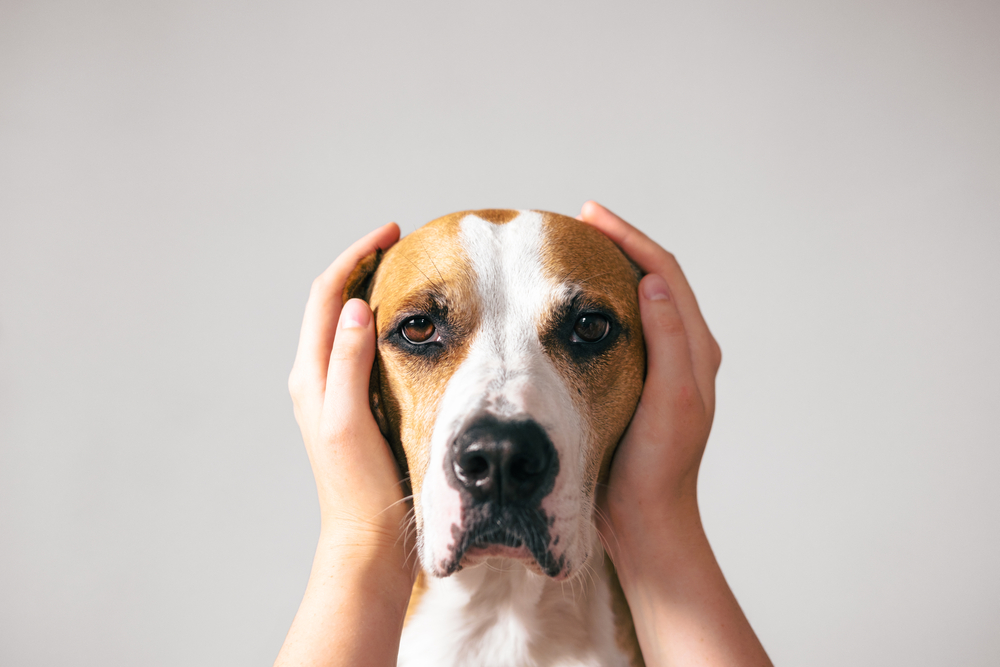
Many australian shepherd’s that suffer from thunderstorm or fireworks anxiety experience relief in a smaller, more isolated room of the house where music can be played at a loud volume.
A word of caution though, if your dog is also experiences separation anxiety leaving them alone in a room during may be counterproductive.
Related: 9 Best Pill Pockets for Dogs
4. Try Using a Compression Wrap (Available in Many Sizes and Will Fit Your Australian Shepherd)
Many dogs are comforted by the feeling of compression across their body. One popular product many have found success with is the Thundershirt (available on Amazon). The product applies gentle, calming pressure that is very reassuring to many pups. The company claims the product to be helpful for about 80% of the dogs who tried it. It can be used to help calm your australian shepherd during fireworks, thunder, separation, travel, or vet visits, with no training and no medication required.
4. Try an Herbal Supplement for Your Australian Shepherd with Calming Herbs Like Chamomile, Passion Flower, Ginger Root or Valerian Root
Many calming supplements exist for dogs that are palatable for dogs, easy-to-feed, and can help quickly relieve your australian shepherd’s stress and give a sense of safety and calm. Some supplements contain calming herbs like chamomile, passion flower, ginger root, and valerian root are a great option. Some products, such as this bacon flavored soft chew for dogs, contain all of the calming herbs in one. This calming chew is also available on Amazon.
5. Experiment with a Pheromone Diffuser for Your Australian Shepherd
Canine pheromone diffusers mimic the calming pheromone that a mother dog emits while nursing her puppies. The diffuser can help many dogs feel calmer and more comfortable in stressful situations.
The same company that makes the Thundershirt above also makes a product called ThunderEase diffuser, which is also available on Amazon.
6. Try an Anti-Anxiety Supplement Containing L-Tryptophan, L-Theanine or Melatonin
Other popular ingredients in anti-anxiety supplements include the amino acids L-Tryptophan and L-Theanine, both of which offer calming properties and increase the release of “feel good” serotonin in your dog’s body. In addition, some calming products for dogs contain a small amount of melatonin, which can help regulate and improve their sleep. All these of these ingredients are available in some chews such as this. This calming chew is also available on Amazon.
7. Experiment with Using Your Own Scent & Sound to Calm Your Australian Shepherd
In my experience, using your own scent and sound to help calm your dog is a powerful strategy in beating anxiety. I stumbled upon this one day with my own dog by accident.
Typically, if I left the home my dog would instantly enter a panic. But one day I needed to take a long phone call, and left my dog outside my bedroom door where I took the call. During the call, she calmly lied next to the door, where she could obviously smell and hear me. It occurred to me that I could possibly mimic this tactic while I wasn’t at home.
I recorded my voice on a CD player and then put it on loop. Then I placed a used t-shirt on the inside of the door where she could easily smell it underneath. To my surprise, I was able to leave the house for a short time. (I monitored her on a video camera). I slowly increased the length of time I left, and always found her calm and sincerely believing that I was just behind the door!
If you’d like to read the full story of how I cured my dog’s extreme separation anxiety, go here.
Another great product to help calm your dog is the Comfort Cuddler Buddy. You can stuff the cozy fleece man with your clothing or pillow case with your scent, and leave with your dog.
Lastly, another popular calming product is the heartbeat puppy toy. Traditionally, these have been used to help calm puppies who recently left their litter. The plush toys come with a warming features as well as a simulated heartbeat. While originally intended for puppies, many dog owners have found they can effectively calm dogs of all ages. This popular model is available on Amazon.
Summary
Defeating your australian shepherd’s anxiety is possible, but every dog’s journey will look different. I hope the tools and strategies above will be helpful to your journey.
If you’d like to learn more about the Hemp oil and calming chews we use here at iHeartDogs, learn more below.
For best results, you can pair the above Hemp oil with the calming chews below. Between the 2 supplements, they offer 10 active and natural ingredients to help calm your dog without the use of medication.
Frequently Asked Questions:
Your Australian Shepherd could be experiencing anxiety or worrisome behavior. It is obviously alarming if your Australian shepherd exhibits anxious or worrisome behavior. With the proper steps, you can help your dog reduce anxiety and reduce troublesome behaviors. Find out what you need to know here and the best supplement to give your dog for stress and anxiety.
Do Australian Shepherds Have High Anxiety?
Australian shepherds are prone to worry, but only under certain conditions. The majority of Australian shepherds who have a regular schedule and live in a serene environment do not exhibit signs of anxiousness. However, this breed does not do well without a schedule or frequent attention from their owners.
Additionally, they are extremely intelligent and attentive to their owners and surroundings, like the majority of herding breeds. When something is wrong with their daily routine, way of life, or environment, they become anxious and nervous.
Why Is My Australian Shepherd So Scared?
Anxiety can manifest itself in various ways, and at times it can lead to both stressful and aggressive situations. Scared dogs act out their inability to control a situation the same as humans. However, they do not have a filter and also cannot gain a better understanding of a situation to calm down. They rely on the emotions of their owners. When their people are calm, Australian Shepherds are calm too.
How Can I Get My Australian Shepherd To Relax?
Before figuring out why the dog is anxious, it is important for owners to know what to do when their dog is anxious. It is natural for us to want to comfort our Aussies too much when they are acting anxious, nervous, shaking, or worried. This is usually done with a soft voice and a sudden show of affection or comfort. Even though this is done with good intentions, it just shows your Aussie that they were right to worry and that something was wrong.
If we always respond in this way, the anxious behavior that your Aussie has learned to show will get worse over time. And they will soon show it more often, even when there is no reason to worry. As such, the best thing you can do to help your dog to relax is for you to keep your emotions in check as they feed off of your emotions. Act controlled and calm, and your Australian Shepherd will too.
What Breed Of Dog Has The Most Anxiety?
Many dogs, even if it’s not normal for their breed, can experience anxiety. Several dog breeds are prone to anxiety, including:
Australian Shepherd
Bichon Frise
Border Collie
Cavalier King Charles Spaniel
Cocker Spaniel,
German Shepherd
German Shorthaired Pointer
Labrador Retriever
Toy Poodle
At What Age Do Australian Shepherds Calm Down?
When they are two years old, most Australian Shepherds should start to calm down. At this age, they are considered to be full-grown dogs who can better control their energy. Still, not all Aussies at this age will calm down. It might take them getting older for their energy to start to go down.
Why Are Shepherds So Anxious?
Herding dogs, especially the Australian Shepherd, have an instinct to herd and are more prone to anxiety if they cannot corral those in their care. As your shepherd cares so much about you, she may feel severe separation anxiety when you leave the house, and they are completely alone. Other stressors can impact dogs as well, but usually on a case-by-case basis. It could be something as simple as a leftover smell in the home, or they may know of a threat that humans do not because of their intense ability to hear and smell.
Do Herding Dogs Have Anxiety?
Yes, herding dogs have a lot of responsibility (at least in their minds), which always leads to more anxiety. These dogs were bred to lead herds of animals like cattle. This means they need a high need for action, exercise, and mental and social stimulation.
Also, Australian Shepherds tend to form strong bonds with their owners, which makes them great guard dogs. Because they are so attached to their owners, they usually do not do well when they are left alone for long periods, even if they are getting enough exercise. These breeds need to see and be loved by their human family members every day.
Do Anxious Owners Raise More Anxious Dogs?
Unfortunately, many anxious people end up sharing their anxiety with their dogs. However, keep in mind that dogs are very in tune with the emotions of their humans and can even smell them. More than a dozen studies have now found links between at least some of the traits of pet owners and how their pets act.
For this reason, they are very empathetic and want to make you feel better. Dogs who live with people who have a lot of stress or anxiety are often more stressed than average and show more anxiety. Over time, because of muscle memory, our fears become their fears.
Are Australian Shepherds Emotional?
Australian shepherds are friendly animals, but they usually only show their true affection to their owners and other family members when they are around other people. Their loyalty comes across as emotional, but really it’s their intuitive nature. With the right training and consistency, you can reduce their emotional stress.
Do Australian Shepherds Like To Be Held?
In short, with the right people, they love to be held, although it’s not easy to do because of their size! It takes him a while to get comfortable with a new person, and it does not always happen. Australian Shepherds can be very loving, cuddly, and affectionate with their family, but they might not act the same way with a stranger. This dog will enjoy snuggling with the people he trusts.
Can Australian Shepherds Be Left Alone For 8 Hours?
When left alone often, Australian Shepherds can feel lonely and more likely to get separation anxiety. This is when a dog gets so worried about being away from its owner that he cannot function. When the owner has to leave the dog alone for a long time because of work or other obligations, their dog then gets scared because they have no one to shepherd and cannot care for the people in their charge.
Dogs depend on their owners for everything, not just food and walks. They need lots of love, play, and time with other people. If you work full-time and do not think you can do this, your Aussie could feel like he is not getting enough attention. But it can work if you can spend a lot of quality time with each other at home.
What Are The Cons Of Having An Australian Shepherd?
Australian Shepherds are wonderfully beautiful, intelligent, loyal, and caring dogs. However, they are high energy and high maintenance. They require a lot of attention, mental stimulation, and exercise to be their best selves. Furthermore, they tend to shed fur a lot which can cause issues for people with allergies, clothes, or furniture.
In addition, some owners of Australian Shepherds may have a hard time with how their dog acts in certain situations. As working dogs, they tend to react to potential threats with more veracity. They need more training from a younger age to help to dispel potential traits in the future. As mentioned above, they experience separation anxiety often, too, as they need to know their heart is safe.
Are Australian Shepherds Difficult?
No, Australian Shepherds are not difficult, they were simply made with a purpose, to shepherd and guard people or other animals. When they cannot do their job that is built into their brain, it can come off as difficulty. This is why they require training to show them how you want them to work for you.
Top 9 Pet Insurance Plans for Australian Shepherds (2022)
- Best Joint Supplement for Dogs
- Best CBD Gummies for Dogs
- Goat's Milk for Dogs
- Skin & Coat Supplements for Dogs
- Weight Gain Supplements for Dogs
- Muscle Building Supplements for Dogs
- Heart Supplements for Dogs
- Multivitamins for Dogs
- Pill Pockets for Dogs
- Digestive Enzymes for Dogs
- Turmeric for Dogs
- Liver Supplements for Dogs
- Tear Stain Supplement for Dogs
- Breath Fresheners for Dogs
- Kidney, Urinary, & Bladder Supplements for Dogs
- Stool Eating Deterrent for Dogs
- Eye Supplements for Dogs
- Melatonin for Dogs
- Apple Cider Vinegar for Dogs
- Green Lipped Mussels for Dogs
- L Theanine for Dogs
- Chondroitin Supplements for Dogs
- MSM for Dogs
- Valerian Root for Dogs
- Chamomile for Dogs
- Boswellia for Dogs
- L Tryptophan for Dogs
- Yucca for Dogs
- Licorice Root for Dogs
- Bromelain for Dogs
- Papain for Dogs
- Devil's Claw for Dogs
- Quercetin for Dogs
- Hemp gummy for dogs
- Best Hemp Dog Treats
- Best Hemp Oil for Dogs
- Best Calming Treats, Chews, & Supplements for Dogs
- Best Bone Broth for Dogs
- Best Fish Oil for Dogs
- Best Probiotics for Dogs
- Best Hip Dysplasia Supplements for Dogs
- Best Colostrum for Dogs
- Best Quercetin for Dogs
- Best Greens for Dogs Supplements
- Best Vitamin C Supplements for Dogs
- Best Probiotic for Dog with Allergies
- Best Taurine Supplements for Dogs
- Best Dog Food Toppers
- Best Anal Gland Supplement for Dogs
- Best Dog Probiotic Powder
- Best CoQ10 Supplement for Dogs
- Best Liquid Glucosamine for Dogs
- Best Wrinkle Creams, Balms, and Wipes for Dogs
- Best Puppy Calming Treats
- Best Colloidal Silver for Dogs
- Best Adaptogen Supplements for Dogs
- Best Cognitive Supplements for Dogs
- Best Bee Pollen for Dogs
- Best Vitamin A Supplements for Dogs
- Best Vitamin E Supplements for
- Best Liquid Glucosamine Supplements for Dogs
- Best SAM-e Supplements for Dogs
- Best Hyaluronic Acid Supplements for Dogs
- Best Apple Cider Vinegar Supplements for Dogs
- Best Diarrhea Medicine for Dogs
- Best Milk Thistle for Dogs
- Best Turkey Tail Mushroom Supplements for Dogs
- Best Astaxanthin Supplements for Dogs
- Best Lutein Supplements for Dogs
- Best Electrolyte Supplements for Dogs
- Best Coconut Oil for Dogs
- Best Prenatal Vitamins for Dogs
- Best Puppy Milk Replacements
- Best Iron Supplements for Dogs
- Best Dewormer Products for Dogs
- Best Mange Medications for Dogs
- Best Cough Relief Products for Dogs
- Best Sinus Relief Products for Dogs
- Best Collapsed Trachea Supplements for Dogs
- Best Fireworks Anxiety Relief Products for Dogs
- Best Thunderstorm Anxiety Relief Products for Dogs
- Best Travel Anxiety Relief Product for Dogs
- Best Supplements for a Dog with a Torn ACL
- Best Supplements for a Dog with Patellar Luxation
- Best Supplements for a Dog with Intervertebral Disc Disease
- Best Zinc Supplements for Dogs
- Best Biotin Supplements for Dogs
- Best Tart Cherry Supplements for Dogs
- Best Resveratrol Supplements for Dogs
- Best Ginkgo Biloba Supplements for Dogs
- Best Ashwagandha Supplements for Dogs
- Best Supplements for Dogs with Cushing's Disease
- Best Adrenal Supplements for Dogs
- Best NAD+ Supplements for Dogs
- Best NMN Supplements for Dogs
- Best Supplements for Dogs with Dementia
- Best Supplements for Dogs with CCD(Canine Cognitive Dysfunction)
- Best Fiber Supplements for Dogs
- Best Spirulina for Dogs
- Best Hairball Remedies for Dogs
- Best Eye Drops for Dogs with Allergies
- Best Magnesium Supplements for Dogs
- Best Brushes for Double-Coated Dogs
- Best Dandelion Root Supplements for Dogs
- Best Probiotic for Dogs with Yeast Infections
- Best Flaxseed Oil for Dogs
- Best Chamomile Supplements for Dogs
- Best Lavender Supplements. Treats & Sprays for Dogs
- Best Collagen Supplements for Dogs
- Best Kelp Supplements for Dogs
- Best Activated Charcoal for Dogs
- Best Slippery Elm Supplements for Dogs
- Best Supplements for Dogs with Seizures & Epilepsy
- Best Antioxidant Supplements for Dogs
- Best Ubiquinol Supplements for Dogs
- Best Hormone & Glandular Supplements for Dogs
- Best Thyroid Supplements for Dogs
- Best Iodine Supplements for Dogs
- Best Dog Shedding Supplements for Dogs
- Best Detox Supplements for Dogs
- Best Postbiotics for Dogs
- Best Aspirin Products for Dogs
- Best Dog Anti-Nausea Products
- Best Dog Mouthwashes
- Best Camelina Oils for Dogs
- Best Hemp Seed Oils for Dogs
- Best Natural Anti-Inflammatories for Dogs
- Best Cancer Supplements for Dogs
- Best Sardine & Anchovy Oils for Dogs
- Best Fatty Acid Supplements for Dogs
- Best Chia Seed Supplements & Treats for Dogs
- Best Olive Oils for Dogs
- Best Amino Acid Supplements for Dogs
- Best Moringa Supplements for Dogs
- Best Echinacea Supplements for Dogs
- Best Cranberry Supplements for Dogs
- Best D-Mannose Supplements for Dogs
- Best Nettle Leaf Supplements for Dogs
- Best Marshmallow Root Supplements for Dogs
- Best Astragalus Supplements for Dogs
- Best Pumpkin Seed Supplement for Dogs
- Best Supplements for a Dog Wetting The Bed
- Best Blueberry Supplement for Dogs
- Best Bromelain Supplements for Dogs
- Best Yucca Supplements for Dogs
- Best Ginger Supplements for Dogs
- Best Rosehip Supplements for Dogs
- Best Allergy Medicines for Dogs
- Best Reishi Mushroom Supplement for Dogs
- Best Maitake Mushroom Supplement for Dogs
- Best Chaga Mushroom Supplement for Dogs
- Best Shiitake Mushroom Supplement for Dogs
- Best Cordyceps Mushroom Supplement for Dogs
- Best Lion's Maine Supplement for Dogs
- Have question? - Ask in our Dog Health Forum
- CBD for Australian Shepherds: What You Need to Know
- Best Supplements for a Senior Australian Shepherd
- Best Flea & Tick Products for Australian Shepherds
- Best Dog Foods for Australian Shepherds
- Best Online Dog Training Courses for Australian Shepherd
- Best Hip & Joint Supplement for a Australian Shepherd
- What Supplements Should I Give a Australian Shepherd Puppy?
- The 9 Best Australian Shepherd Puppy Foods
- Best Dog Beds for Australian Shepherds
- Improve Your Australian Shepherd's Skin & Coat with This One Hack
- Giving This to Your Australian Shepherd Daily Can Alleviate Itchy Allergies
- 6 Natural Ingredients to Fight Your Australian Shepherd's Allergies
- 8 Ways to Stop Your Australian Shepherd's Scratching
- 7 Ways to Calm Your Australian Shepherd's Anxiety
- 6 Remedies for Your Australian Shepherd's Diarrhea, Gas, or Vomiting
- 7 Best Dental Chews for a Australian Shepherd
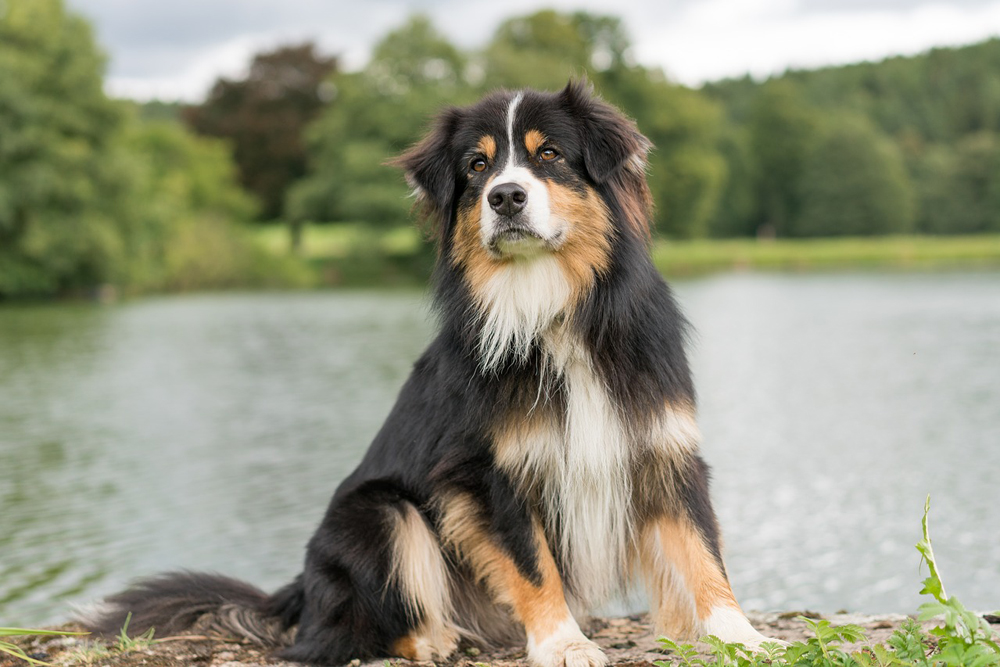
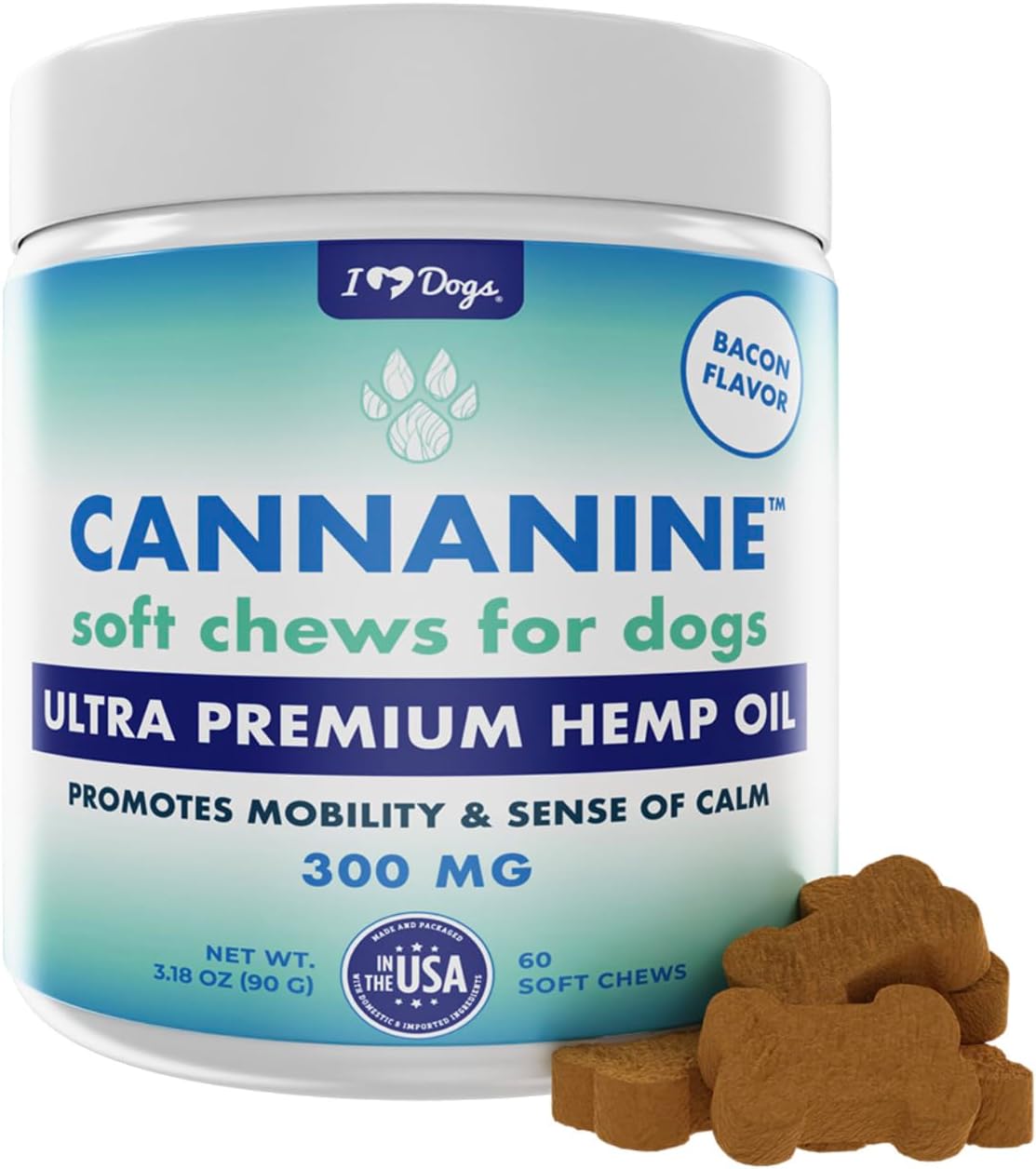
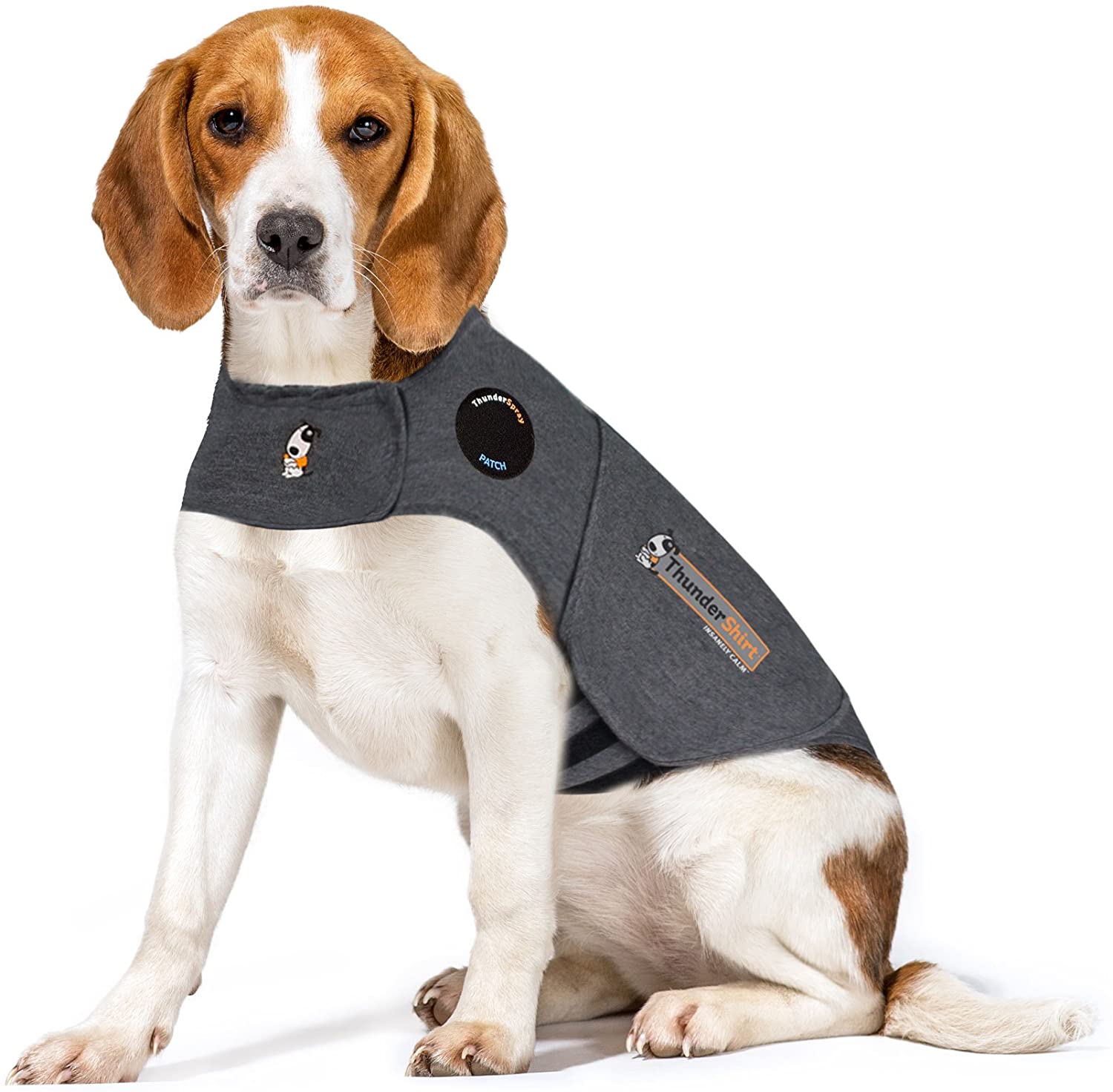
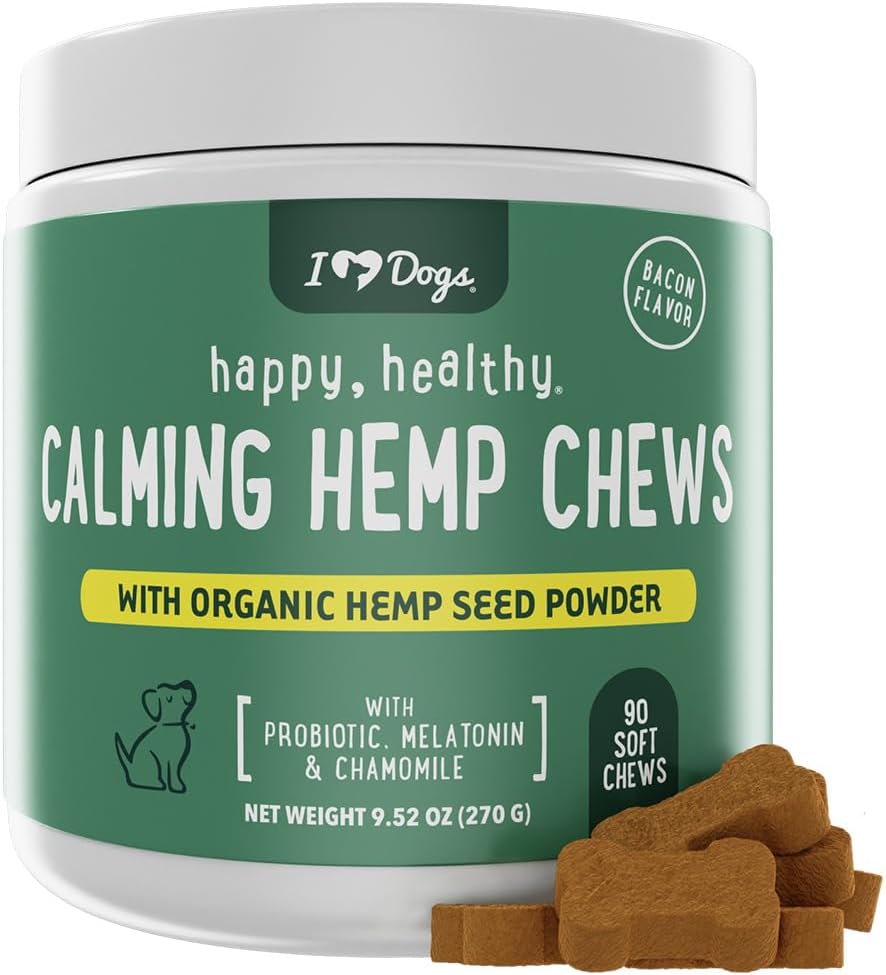
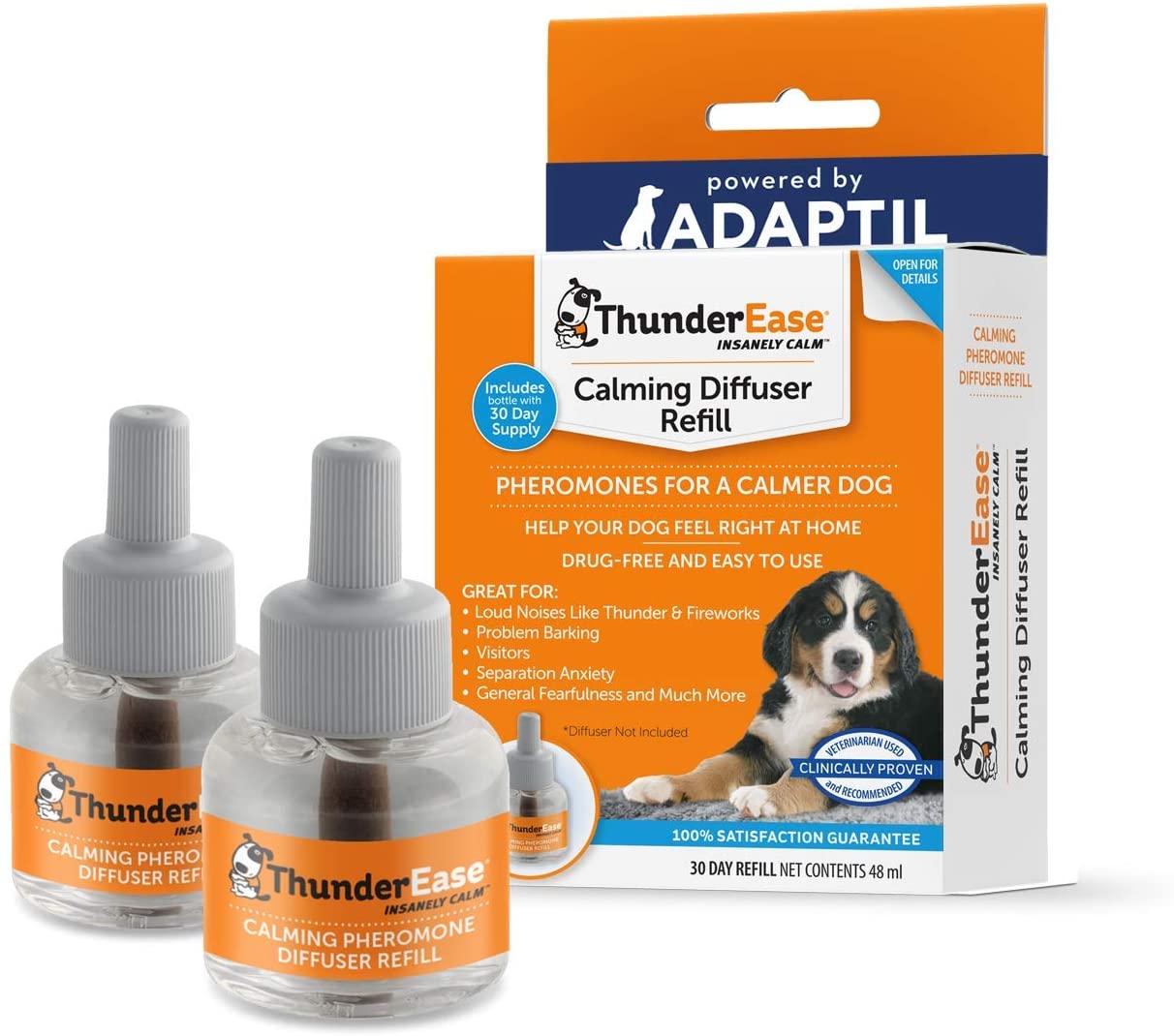

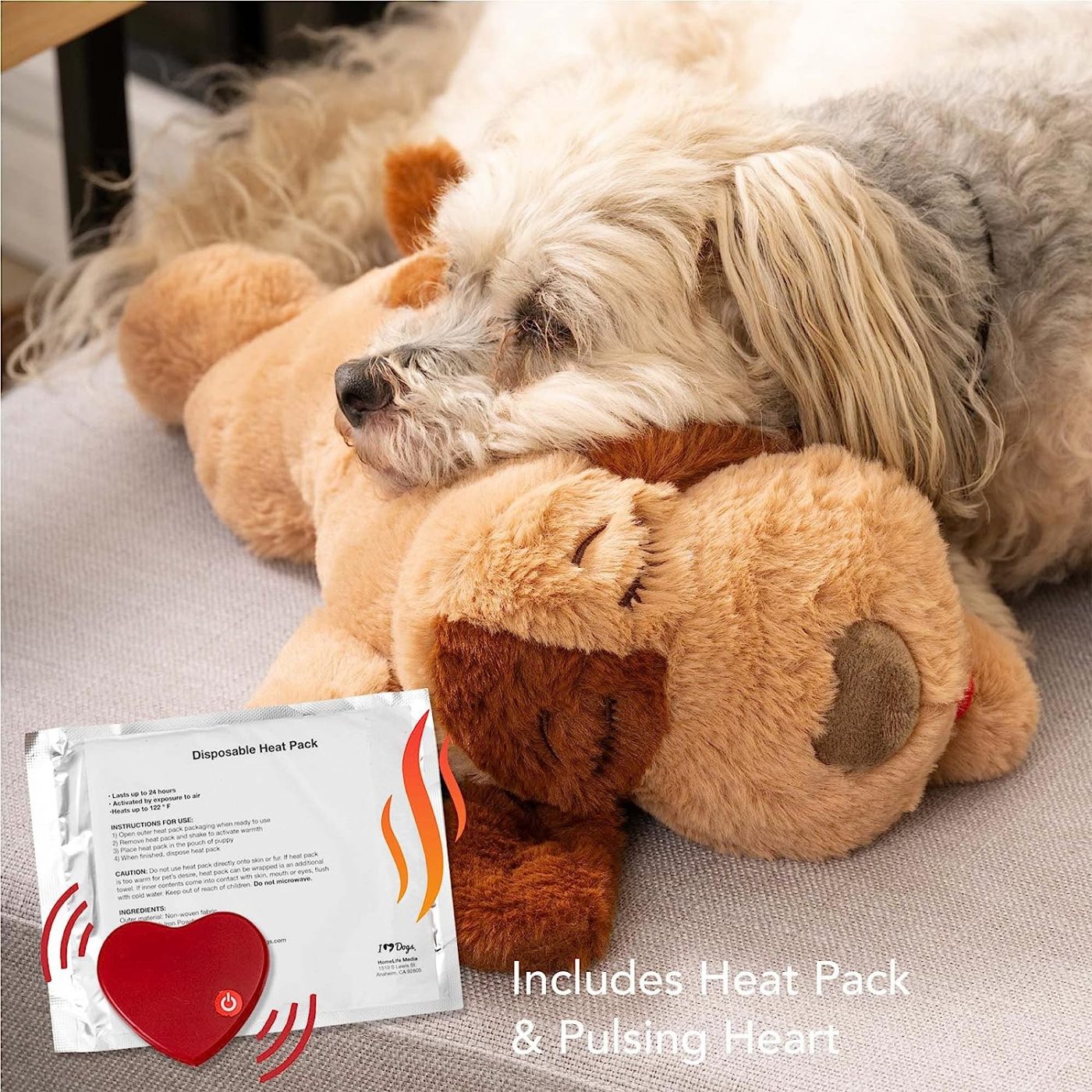
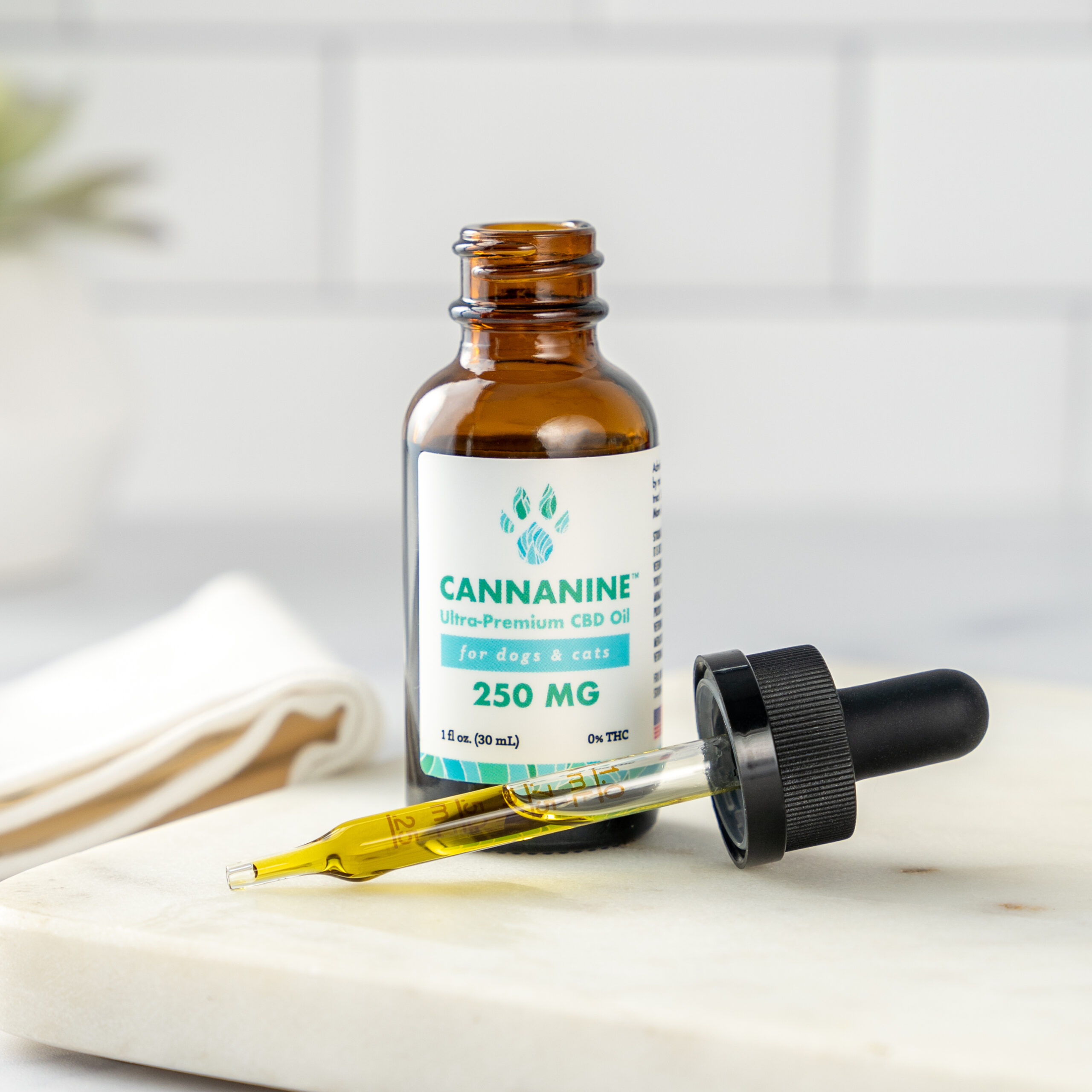
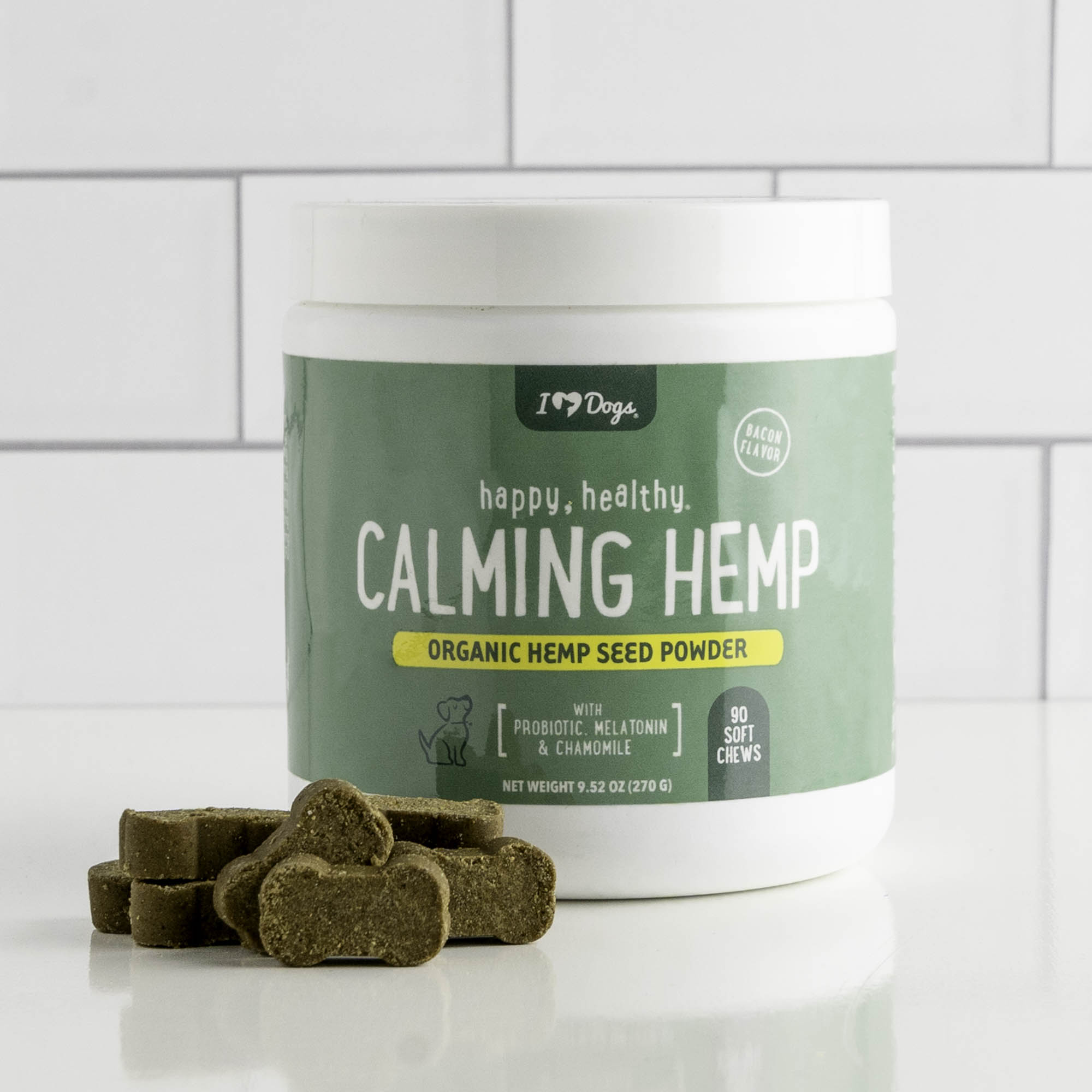
 Toledo, United States.
Toledo, United States.